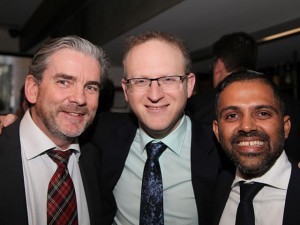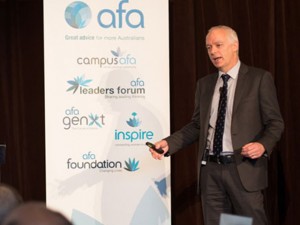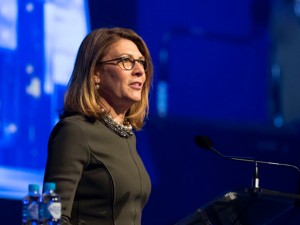A new buzz word has entered the financial services vernacular – ‘finology’. But just what is finology and why is it important?
What is finology?
At its most basic level, ‘finology’ is: the relationship between financial planning, individuals and money.
Richard (Dick) Wagner, an American financial planner with more than forty years’ experience who has made a significant contribution to the study of advice, is believed to be the first person to coin the term finology, back in 2011.
In defining the term, Wagner explained that in order to effectively study something, it must be named. “The name must be accessible, pronounceable and logical,” Wagner stated. “For example, no one would talk about ‘the stuff of our imaginations, our dreams, idiosyncrasies, habits and feelings’. Such a name would make study of the phenomena of human behaviour impossible. Rather, we have adopted the more logical and concise term “Psychology” to describe our study of ourselves…” http://www.worthliving.com/2011/03/finology/
Wagner defines finology as:
- the science of money and behaviour
- the study of mind and behaviour in relation to money and the money forces
- the theory or system of finology
Finology has been adopted as an area of study by the US Financial Planning Association (FPA). It is viewed as a way to re-imagine the process of financial advice, complementing an adviser’s technical ability with ‘soft’ skills, which enable greater engagement between adviser and client.
finology is integral to the transformation of advice into a profession
In 2012, David Greenslade, Managing Director of Strategi, a New Zealand-based consultancy firm, attended a US FPA retreat, during which he was introduced to the principles of finology. Greenslade provided further insight into finology in a subsequent blog post for the Leading Minds Academy, in which he stated:
‘Finology incorporates behavioural finance, ethical selling skills, building trusted relationships, harnessing technology to explain concepts, risk profiling and life cycle planning. It overlays an adviser’s technical skills (e.g. investment advice, insurance advice or mortgage advice) by asking “How do we best apply these to this person sitting in front of me?” http://leadingmindsacademy.com/resources/articles/how-to-become-a-finologistto-build-trust#sthash.7bXah7Vc.dpuf
In Australia, PortfolioConstruction Forum, an independent education service for investment advisers, has embraced finology, employing Dr David Lazenby to oversee the Forum’s finology curriculum.
PortfolioConstruction Forum defines finology as: ‘The emerging (and converging) research field covering the study of minds, customs and behaviours with respect to money. It incorporates behavioural finance, and much, much more.’
Why do we need it?
According to Dr Lazenby, finology is integral to the transformation of advice into a profession. He says advice needs to evolve, and new thinking is needed to facilitate that evolution. He adds that finology provides a framework for re-envisioning advice from the customer experience perspective; his desire being to make advice better.
“The way we’ve traditionally positioned and marketed advice is wrong. It’s counter-intuitive to getting customers to come to you,” says Lazenby.
By way of example, he likens the advice experience as a combination of a doctor’s visit, a maths class, and marriage counselling. No-one likes going to the doctor, because invariably the news is going to be bad. People are also fearful of maths, because it is something most of us left behind at high school. And marriage counselling forces the person to confront intense emotions and deep feelings in the company of a stranger.
“Don’t get me wrong – each of those three things is a noble profession in itself. But combine them and it’s not something you want to open up a storefront with.”
Instead, Lazenby believes advisers need to think about the advice experience from the perspective of a customer, and design a process that engages and welcomes new participants, rather than frightening them away. A particularly good way to do this, says Lazenby, is to put yourself through your own advice process.
“Imagine how you would feel if the coach of the Australian cricket team had never played the game before. You would seriously doubt their ability to do their job. And yet the majority of advisers have never played their own game.”
Finology in action
Experience design
The typical advice process begins with the client(s) divulging their personal and financial details, so that the adviser can form a picture of their needs, goals and financial position. This makes sense from a process viewpoint, because the adviser needs to have all the facts before they can provide any solutions (not to mention having sufficient detail to complete compliance requirements).
But when considered from the client’s point of view, says Lazenby, this process can be extremely daunting, and may leave the client feeling quite vulnerable.
“The first hurdle we put in front of clients in the advice process is to ask them to produce all their financial documentation and information up front. That puts people off. Many will think: ‘I’m not that organised’, ‘I mustn’t be a good person’, ‘Other people are better at this than me’. This may lead them to the conclusion that, ‘Advice must be for someone else’.”
Why would someone follow a plan if they don’t know where it’s taking them?
If a client can get past their initial concerns, according to Lazenby, they usually follow these steps:
- The adviser gets all the information
- The adviser talks a lot, to demonstrate their expertise, and to build rapport
- The adviser takes all that information, and goes away to analyse it
- A week later (minimum) the adviser calls the client back in and presents the plan (which is always right the first time)
- The client is expected to follow the plan, exactly as it is set out
“This process is clearly wrong,” says Lazenby, “because it’s designed to solve simple problems. A person’s financial situation, their hopes and dreams, are not simple problems.”
Lazenby challenges advisers to completely map out their advice process, from beginning to end, by documenting every single point of touch the adviser has with their staff, the client, and with any particular piece of paper. Once mapped out, advisers should look at how much of the advice process is hidden from the client.
“You take the client’s information; you go ‘behind the curtain and do the magic’, then come back and present it. That is counter-intuitive to getting someone to buy in to what you are doing. Why would someone trust you with their information if they don’t know what you’re doing with it? Why would someone follow a plan if they don’t know where it’s taking them?”
Technology
One way to bring the advice process out in the open is to utilise technology. Lazenby says he has observed many advice businesses that have tried to incorporate new technology into their process, but he believes they are failing to harness its true power – transparency.
“The trouble with technological advancement is that at the beginning, people apply their old-world thinking to the new technology. For example, when they first invented television, they showed radio programs. It took them a long time to realise that they could use this medium to show more than just people sitting around a table telling a story; they could use different scenes, other visual tools, to deliver that story. But in the beginning, they showed what they knew.
“Just because you’ve got this great technology – your big screen, your projector, your laptop – doesn’t mean you’re making the most of it. Most advisers use those tools to show a PowerPoint presentation, or a PDF, neither of which is interactive. Now, there’s nothing wrong with that – it is an inherent process of evolution – but we’re saying you can design a really engaging, interesting customer experience if you think about things a little differently.”
when they first invented television, they showed radio programs
Advisers should take advantage of technology which allows them to demonstrate the ‘behind the curtain magic’ to the client, using their own information. Lazenby encourages advisers to do the calculations in front of the client, and even allow the client to ‘touch and feel’ the implications of different decisions. This ‘gamification’ of advice is something which can be seen through the popularity of online calculators and so-called ‘robo-advice’ tools.
“Who would have thought that 20 years ago you could look up where your UPS package was? In fact, you’re doing it yourself – the company is not doing it for you. The transparency is what really allows that acceleration of that experience.
“If you can embed that with your clients – if they see you as being transparent – that’s incredibly powerful.”
Education and training
The other advantage of pulling the curtain back and revealing the whole advice process is that the client’s financial literacy is likely to increase.
“Don’t assume your clients know or understand where they currently stand in terms of their finances.”
Lazenby says while it is positive to see advice firms focusing their attention on client education, what they should be doing is providing client ‘training’.
“Just giving the client a piece of paper is not doing your job. That’s education. Training is giving the consumer the tools and language to use to explain their decisions with their family and friends,” explains Lazenby.
“We shouldn’t expect our clients to simply do what we tell them – we should let them take control of their own decisions, and become a decision reassurer.
“I believe we, as advisers, have a duty to incorporate learning strategies into our work. That’s one thing that seems to be missing in the current range of adviser degrees and qualifications. Teachers are expected to articulate what they believe about human behaviour and learning – I think advisers should have to do this too.”

Dr David Lazenby is a licensed psychologist with a PhD in counselling and performance psychology. He is a leading expert in financial planning experience design, taking psychology from academic theory to the real world to help wealth professionals develop their “bedside manner”, human relations skills, systems thinking and scenario planning techniques and tools. For over 30 years, he has guided Fortune 100 executives, global financial services firms, financial planning start-ups, professional athletes and US Navy SEALs and pilots. He has consulted to the US Federal Reserve and sits on three family firms’ investment committees that oversee US$8bn in investments. In 2015, Dr Lazenby joined PortfolioConstruction Forum as Chief Finology Officer, with the brief of overseeing PortfolioConstruction Forum’s finology curriculum.
His background in finology has made him an expert in financial planning experience and advice processes design, as well as improving advice models through superior communication with clients.

















